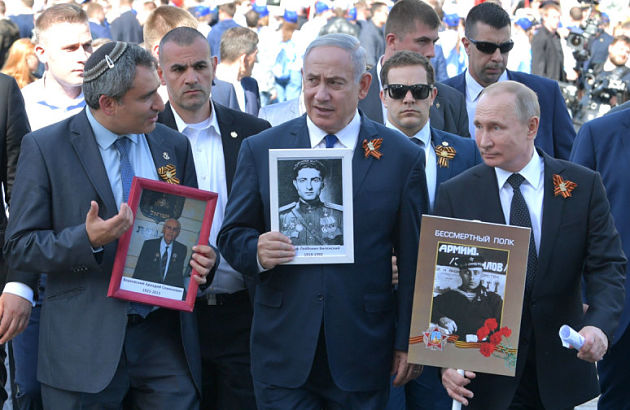The process of discussing constitutional amendments by a small group of individuals generally elicits a completely indifferent response from the public. Any reasonable person understands perfectly well who these changes are for and why they are needed, and therefore rightly considers them to be of no relevance to them.
Yesterday, for example, there was another meeting of the working group that prepares these changes, which already approved the voting day on which they will be adopted (which no one doubts) – April 22, the birthday of the “Leader of the World Proletariat”.
Without going into all the amendments discussed there, let us highlight some of them that will essentially enshrine the official ideology of the existing regime in the Putin Constitution.
For example, it is likely that it will include a provision stating that the state in Russia “protects historical truth, does not allow the falsification of history, and diminishes the significance of the people’s heroic deeds in defense of the Motherland”. In plain language, this means that at the constitutional level it will now be established that instead of different points of view on history, which everyone can express in accordance with the principle of freedom of speech, there is a certain “historical truth” that is protected and established by the state. Denial or criticism of this truth is considered “historical falsification,” which is also prohibited.
This is especially true for the pages of history related to numerous wars, from those waged by tsars and communist dictators to those currently being waged by their ideological successors, hiding behind the “defense of the motherland,” the legitimacy of participation in which will also be beyond question. The most important of these wars will, of course, remain the war of 1941-1945, which has long since become not only a state but also a de facto religious cult. It is this war that is regarded as the unifying cult of the “new historical people’s community” that emerged in the USSR and that is to be enshrined in the Putin Constitution.
For example, Putin supported the initiative of Vyacheslav Nikonov (the grandson of Stalin’s minister Vyacheslav Molotov) to make it the responsibility of the state to ensure the preservation of the “pan-Russian cultural identity” for compatriots living abroad, which would allow them to maintain the spiritual unity of the Russian world. Commenting on the proposal, Putin said: “We have many of our people living abroad, and in fact it doesn’t matter anymore what ethnic group a person belongs to, what nationality he has, abroad they are all Russians. And the bearers of the Russian culture and the Russian language certainly have the right to call themselves that. That is why our task is to protect them and maintain contacts with them.
In other words, we can see that no other cultures and languages of compatriots living abroad, including Tatars, Chechens, Circassians, and representatives of other indigenous Russian ethnic groups, are considered valuable for the “multi-ethnic state” of the Russian Federation – it is assumed that, regardless of their nationality, “they are all Russians” abroad.
By the way, about the Russians. They are also to be included in the Putin Constitution, but in a rather peculiar form. It is planned to introduce the following formulation: “The state language of the Russian Federation throughout its territory shall be the Russian language as the language of the people forming the state.”
However, there is a legitimate question – which specific people, whose name is not mentioned, are being referred to? After all, Russian has long been the language not only of ethnic Russians. And in general, who does Putin himself consider to be Russian? He recently said: “You said Russians, Russians. Who are the Russians? There were practically no Russians before the 9th century. They were gradually formed from many ethnic groups, mainly Slavic, but not only, Ugric-Finnic and others. In the khanate in the south, everyone was called a Jew. Are they ethnic Jews or not? There is an opinion that Jews spread all over Europe. Is this true? And these are completely different people from the biblical Jews of Sinai, these are ethnic people who never had anything to do with Judaism. They simply practiced Judaism in the Khanate, which was on the shores of the Azov and Black Seas, and this is also our ethnic group that the Russian people absorbed. This is a natural development that cannot and should not be hindered.
In other words, the state-forming people are effectively declared to be the bearers of the Russian language as such, who for Putin are Russians – with a separate mention among them of the descendants of the Khazars who professed Judaism, who are also considered “our ethnic group”.
The main thing is that all of them recognize the Soviet and Russian “patriotic ties”.

